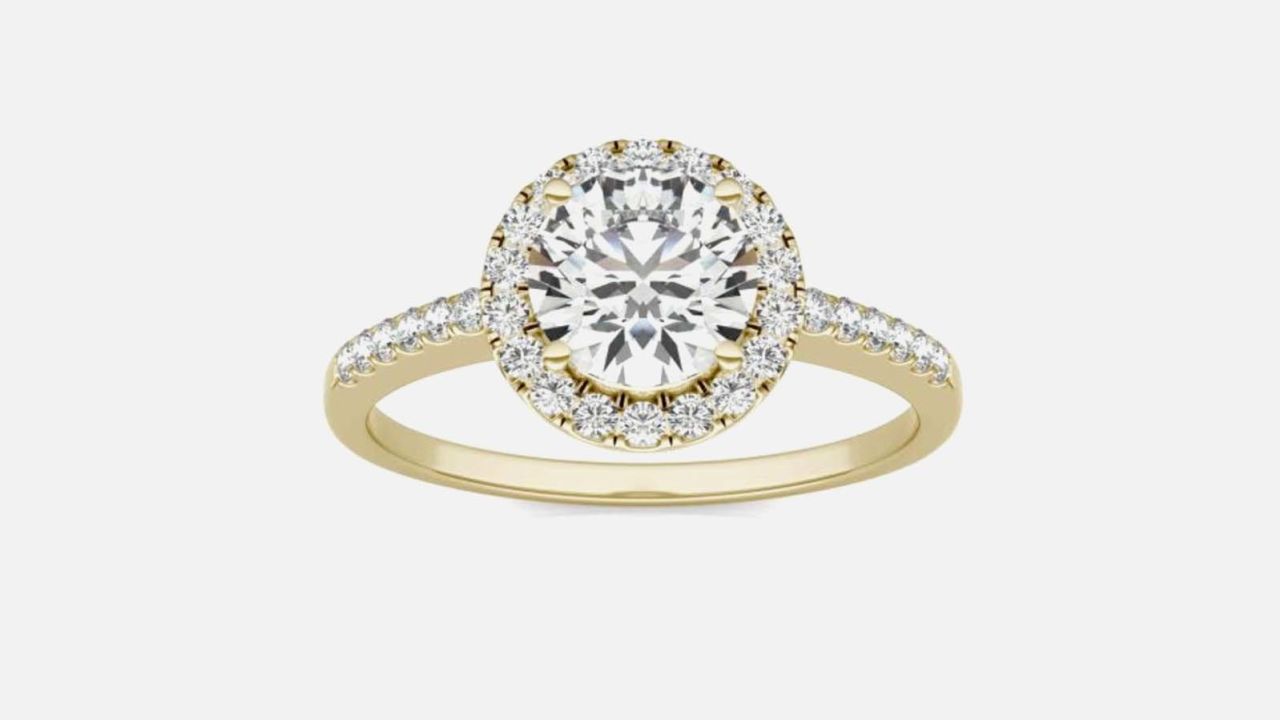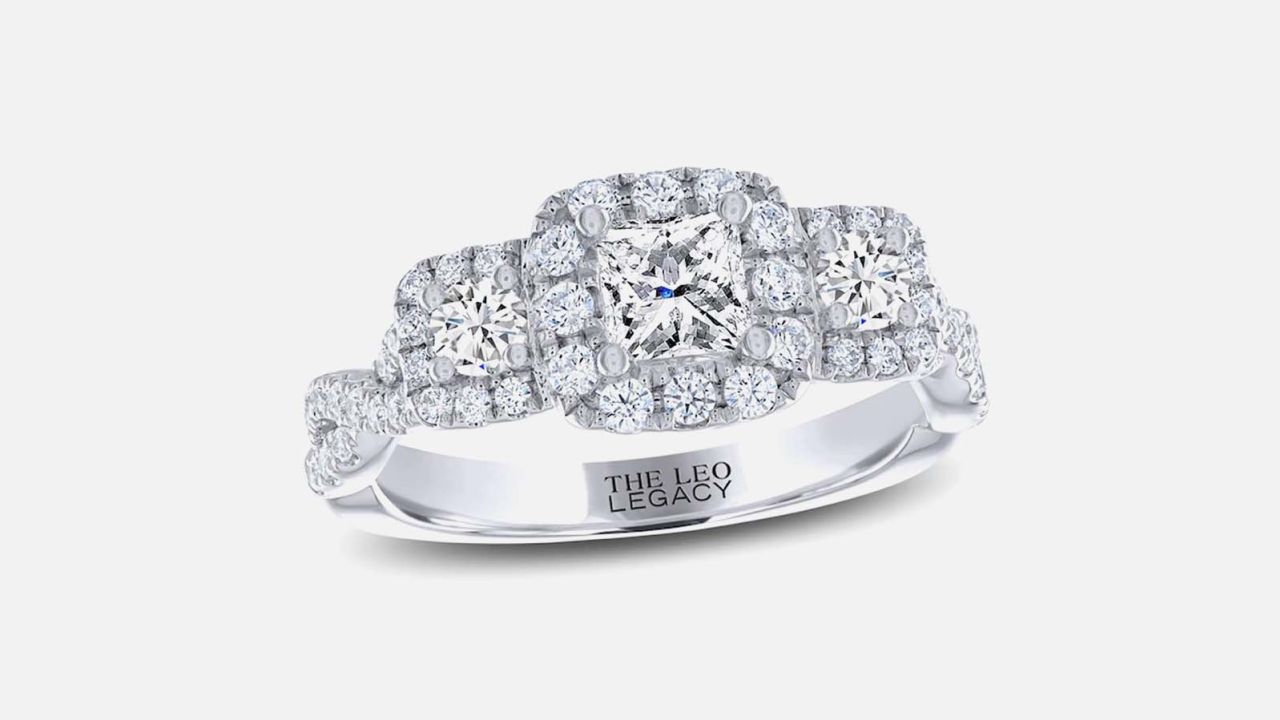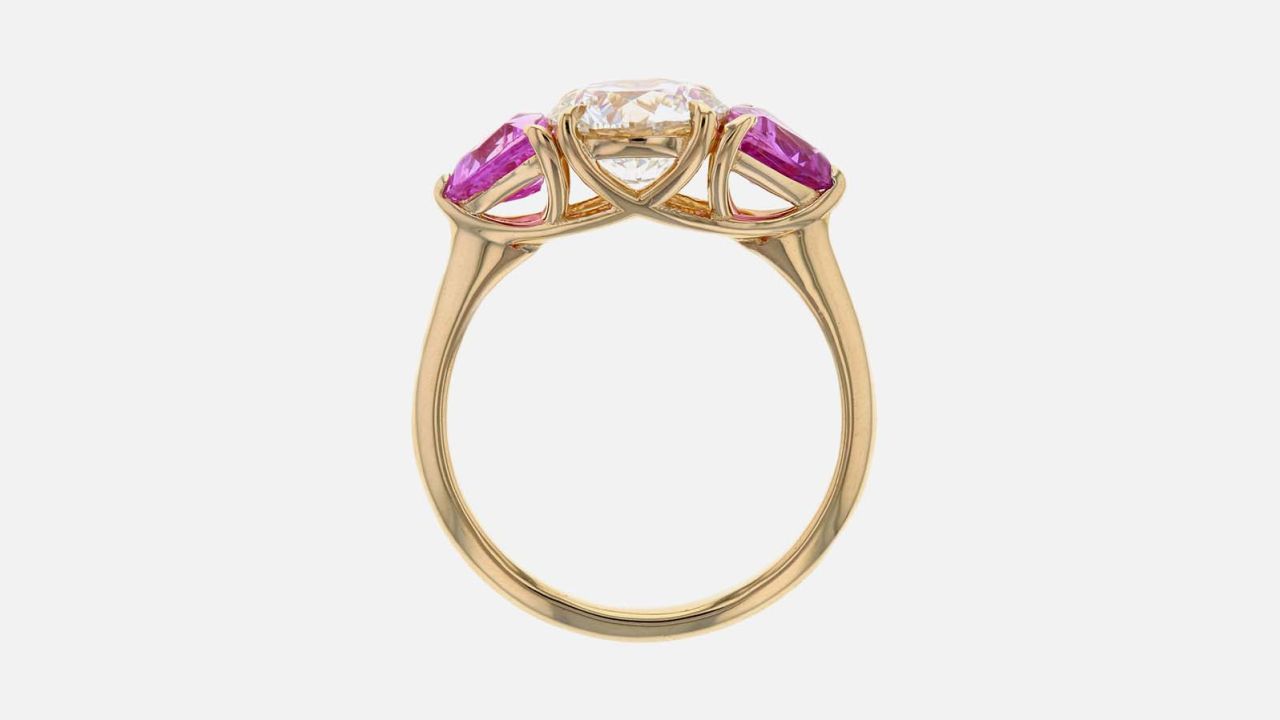It’s proposal season, and engagements are on the rise. So are factory-made diamond sales.
Not that you’d know the difference. Man-made diamonds look the same as naturally occurring ones. The only noticeable difference is the price tag.
“The result is really stunning,” said Edahn Golan, an independent diamond industry analyst.

Going back by another month, to February, the data showed the number of rings sold with lab diamonds that month surged even more, to 80% compared to a year earlier while the number fell by 13% for natural diamond engagement rings.
“The big fear in the natural diamonds industry is that consumers will start accepting lab-grown diamonds in engagement rings,” he said. Too late. “It’s actually happening.”
Tide is shifting
Why are consumers flocking to man-made diamonds? Cost is the most obvious reason. The average retail price of the most popular one carat round man-made diamond for an engagement ring in March was $2,318, Golan said.
“This is substantially less – as much as 73% cheaper – than a natural diamond of the same size, cut and clarity as the man-made diamond, which would cost $8,740,” he said. Plus, the lower cost allows couples to buy a bigger stone.
“A lab diamond is a real diamond, but maybe it took a few weeks to make it,” said Golan. “Natural diamonds were formed over 800 million to three billion years and there isn’t an infinite supply of them.”
This makes natural diamonds quite a bit more expensive, and prices are likely to rise as Russia’s invasion of Ukraine has tightened the supply chain for natural raw diamonds.

The sanctions directly target Alrosa, partly owned by the Russian government, which the US government identified as the world’s largest diamond mining company, accounting for 28% of global diamond output.
Man-made diamonds are also becoming popular as consumers are more aware and educated about them, said Dan Moran, a third-generation diamond expert and owner of LA-based fine jeweler Concierge Diamonds. Moran said the typical buyer of man-made diamonds is typically younger than 40 and very budget conscious.
Mined diamonds have a controversial history that’s tied to the use of child labor in some African diamond mines as well as sales of illegally-traded “conflict diamonds” that fund conflict in war-torn areas.
Among Millennials and Gen Z, their eco-conscious mindset and ethical concerns about natural diamond sourcing is another factor influencing their preference for non-traditional engagement rings, according to a report from wedding planning website The Knot.
Small but growing share of the diamond market
Although its slice is growing, the market share for man-made diamonds remains relatively small.
Currently, about 7% of the specialty diamond jewelry market is represented by man-made diamonds, up from 3% in 2020, said Golan.
Some major jewelry retailers are driving the effort to take man-made diamonds mainstream. In 2021, the world’s largest jewelry company, Pandora (PANDY), made a major shift by announcing it would stop using mined diamonds and would swap to lab-created diamonds in its jewelry.
Pandora said it’s instituting the change as part of an effort to sell sustainable jewelry, and also because consumers increasingly are asking for it.
Signet, (SIG) the largest jewelry company in the United States (which owns Zales, Kay Jewelers and Jared chains) called out the popularity of lab diamond jewelry in its March earnings call with analysts.

Calling it a “fast-growing category” in its jewelry portfolio, Signet CEO Virginia Drosos told analysts that lab-created diamonds are among the big jewelry trends she expects this year.
The company said it has expanded its man-made bridal jewelry selection in both its Zales and Kay Jewelers stores in response to the increased demand.
Fine jewelry brand Charles and Colvard, which makes lab-created diamonds, said consumers don’t just want to look good with the jewelry they are wearing, they also want to feel good about it.
“As the momentum for conscious consumerism grows, the surge towards lab grown diamonds isn’t surprising,” said Don O’Connell, president and CEO of Charles & Colvard. “[Consumers] want to know the origins of their stones and be reassured they’re conflict-free. They’re embracing the choice to purchase a piece of fine jewelry that aligns with their values.”
Lab-grown diamond brand VRAI said the pandemic, too, has sparked attention and action toward social and environmental issues. It said consumers are being more thoughtful and reassessing their purchasing habits, as well as the companies and industries they are supporting.
There is, however, one important consideration for anyone buying lab-created diamonds: Man-made diamonds have little resale value.
So while you may not be able to tell a natural diamond from a factory made variety, someone with a trained eye can, said Golan. Once a stone is identified as a factory diamond, even though you paid a lot less for it, you also won’t get much for it.
But the value of a ring isn’t just monetary.
“As a professional in the industry, I am asked all the time by people about what I think about a ring they have,” said Moran, of Concierge Jewelers. “I always say, if you love it, be happy with it. An engagement ring is a symbol of commitment and enduring love.”
Source: CNN


